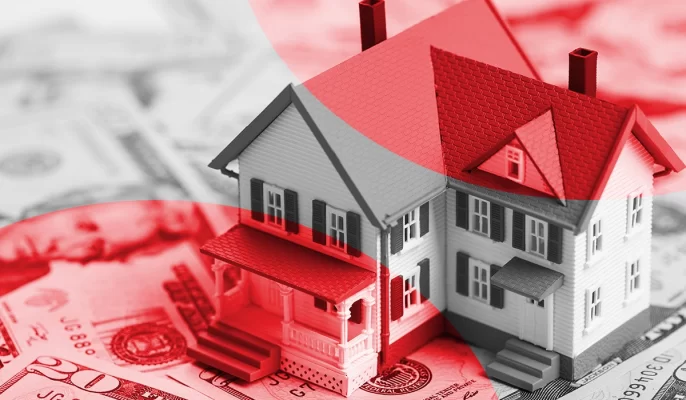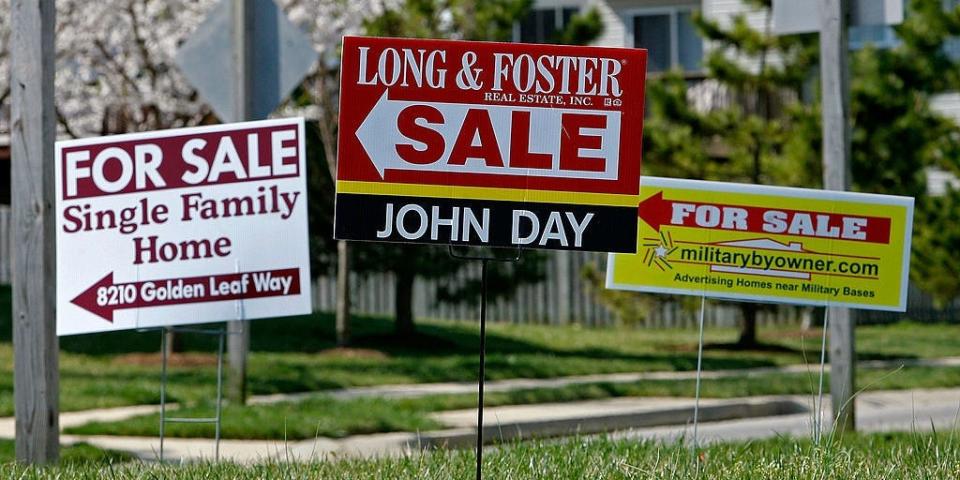The US Housing Market Rebounds, Posing a Challenge for the Federal Reserve
The US housing market is experiencing a rebound, marked by a surge in new home sales, rising home prices, and bidding wars among prospective buyers.
This unexpected recovery presents a challenge for the Federal Reserve in its battle against inflation. And complicates efforts to keep shelter costs under control.
Factors such as record-low mortgage rates during the pandemic have prompted homeowners to hold onto their properties. Resulting in a limited supply of single-family homes.
Concurrently, a wave of millennial first-time homebuyers, driven by strong wage growth and healthy savings, are actively seeking homes.
This demand pressure is driving up prices despite concerns about affordability exacerbated by recent interest rate hikes by the Federal Reserve.

The signs of recovery in the US housing market are evident in various indicators. Prospective buyer traffic for new homes has nearly doubled in the past six months. According to data from the National Association of Home Builders.
You may also like: Federal Reserve to Pause Rate Hike, But Signals Future Increases
Sellers are now receiving an average of 3.3 offers for their homes, up from 2.2 offers in December, as reported by the National Association of Realtors.
Furthermore, new home sales experienced a notable 12.2% increase in May. While home prices have been on an upward trajectory for three consecutive months.
The US housing market resilience indicates that the Federal Reserve’s efforts to slow down the market may require higher interest rates for a longer period to achieve the desired annual inflation rate of 2%.
Economists estimate that housing inflation needs to fall to approximately 3.3% annual price growth in the Consumer Price Index (CPI) for the broader index to align with the Fed’s target. As of May, rent saw an 8.7% annual growth, while the equivalent measure for homeowners reached 8%.
Affordability Concerns and Interest Rate Hikes of Housing Market
The US housing market resurgence raises concerns among central bank officials regarding the future. While there are expectations of a slowdown in housing inflation, the housing recovery has prompted discussions about the sustainability of long-awaited rent relief.
The potential adverse effect of interest rate hikes on affordability adds a complication to the Federal Reserve’s decision-making process.
While rate hikes may slow demand by making homebuying more expensive, they also increase the cost of home-building, leading to supply constraints and future price increases.
The risk is particularly relevant as new builds now represent a larger share of home sales, accounting for approximately one-third of the US housing market. Current homeowners’ reluctance to sell has contributed to this shift.

However, tighter financial conditions may impact acquisition and development loans, potentially reducing the availability of building lots for future construction. This could exacerbate existing supply issues and push prices even higher.
Ultimately, the Federal Reserve finds itself in a challenging situation where the only short-term tool to address housing market concerns could have long-term consequences.
Striking the right balance is crucial to prevent broader inflation from spiraling out of control. The near-term challenges are likely to take priority, and higher interest rates may persist for an extended period.
The US housing market rebound poses a significant challenge for the Federal Reserve as it navigates inflation concerns. While the market shows signs of recovery, rising prices and limited supply present difficulties in maintaining stability.
Balancing the need for short-term control with long-term consequences will be a delicate task for the Federal Reserve.





